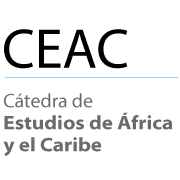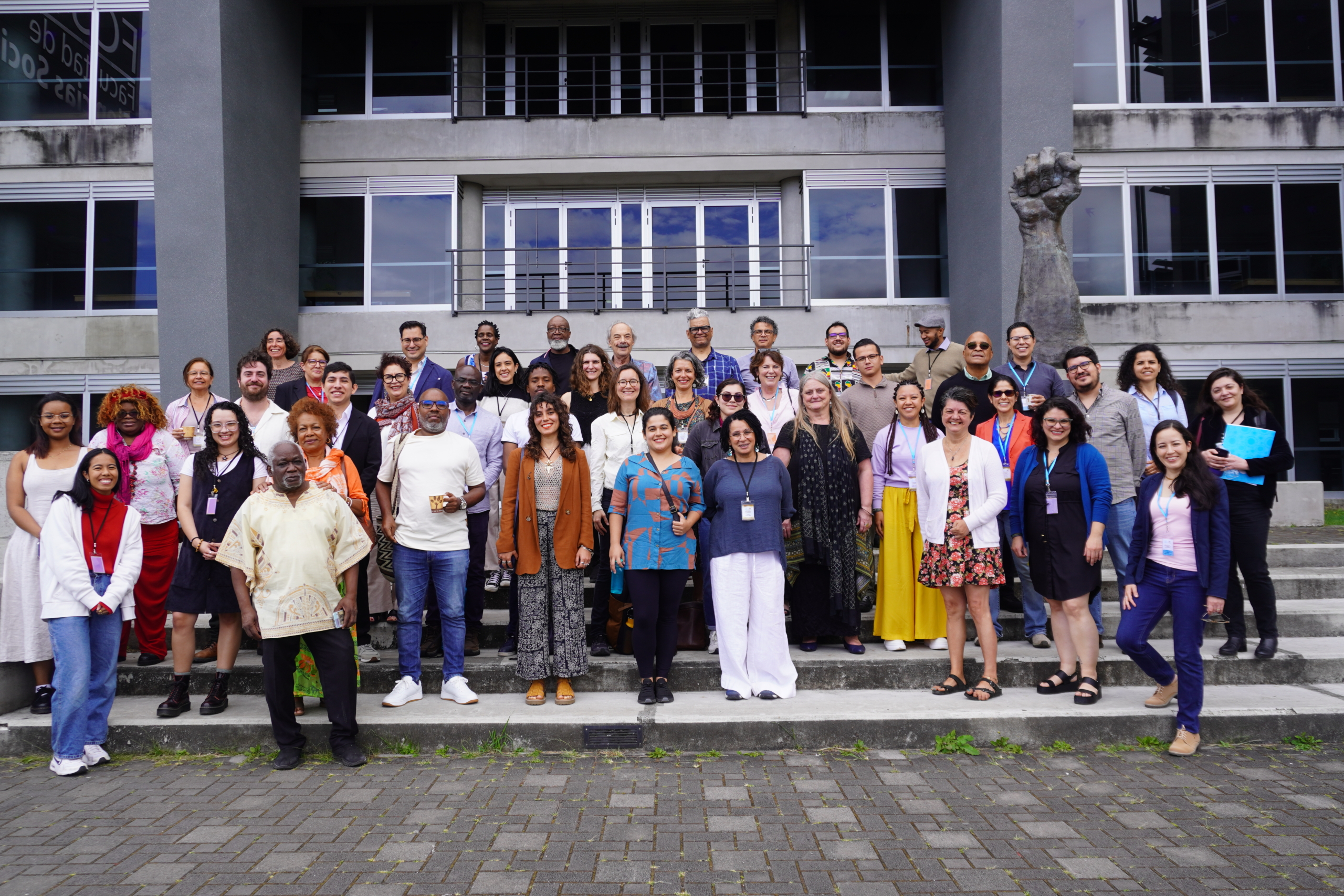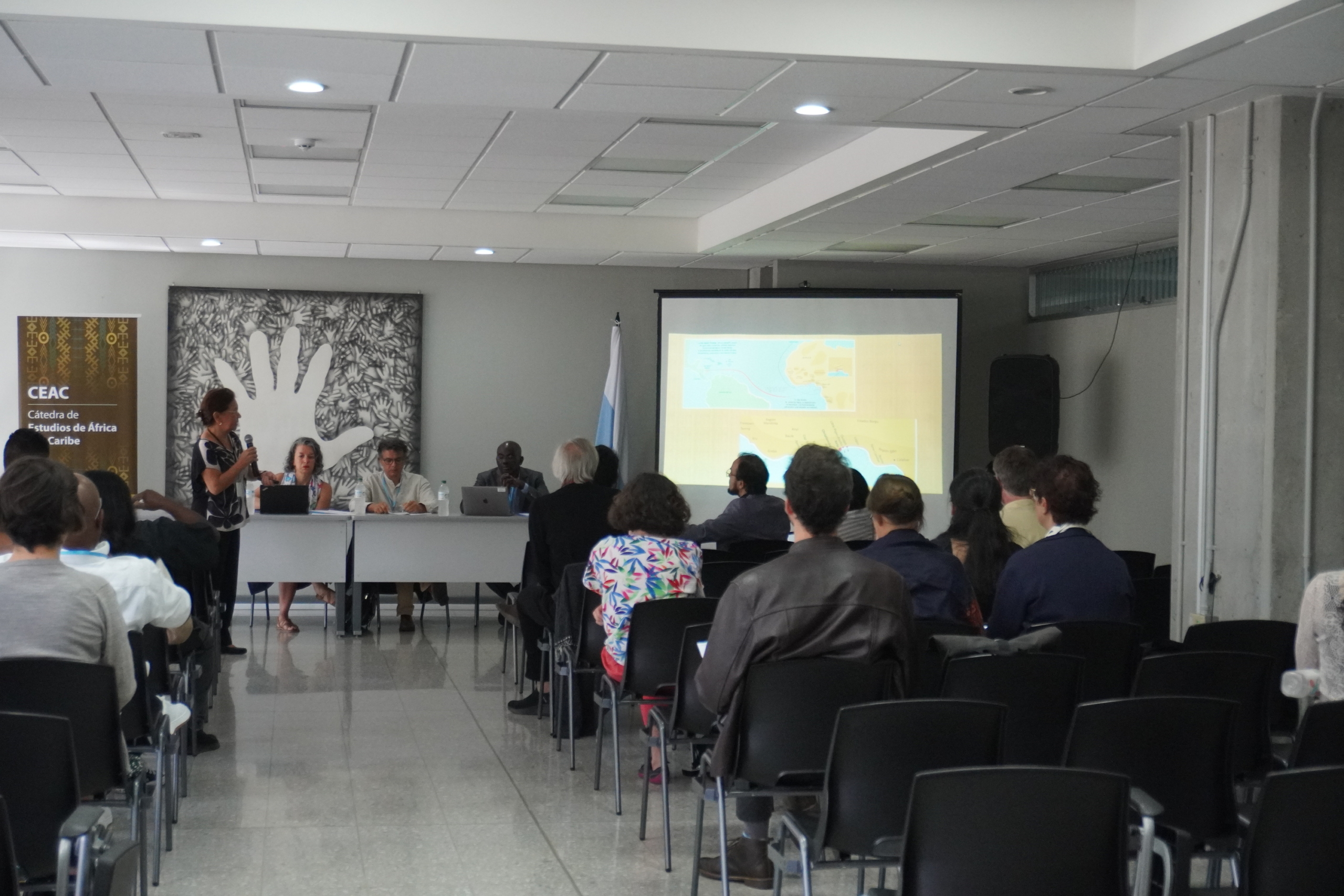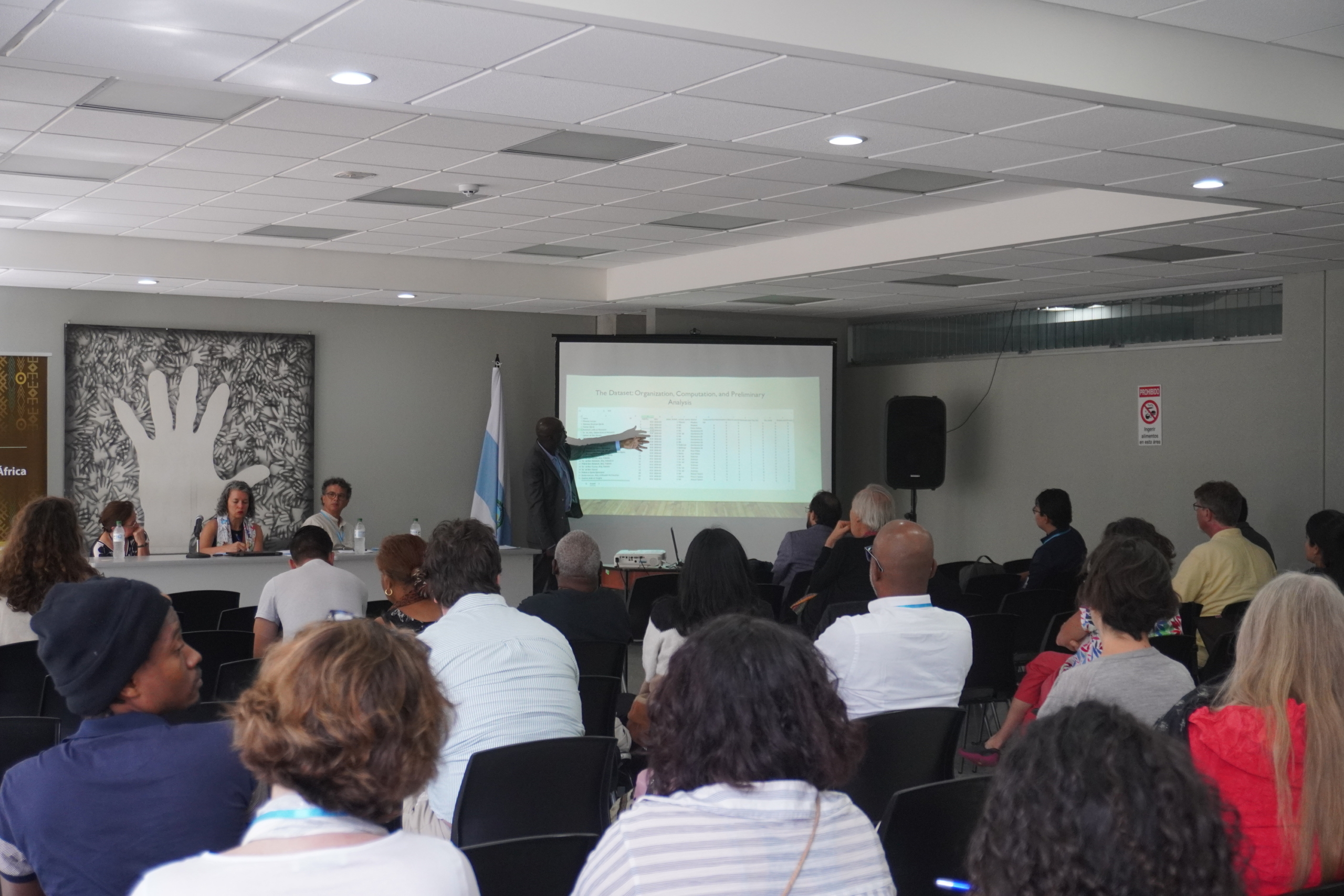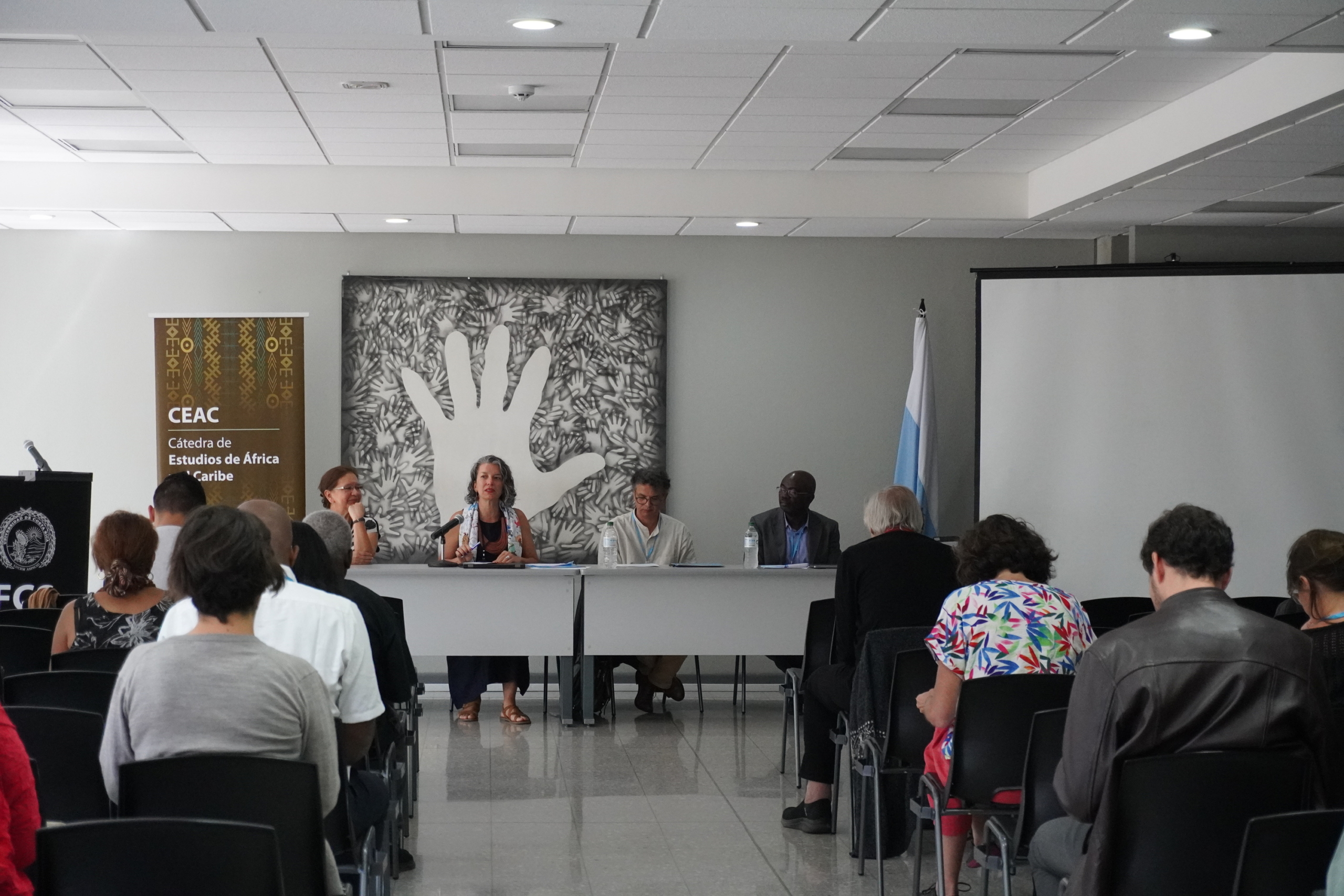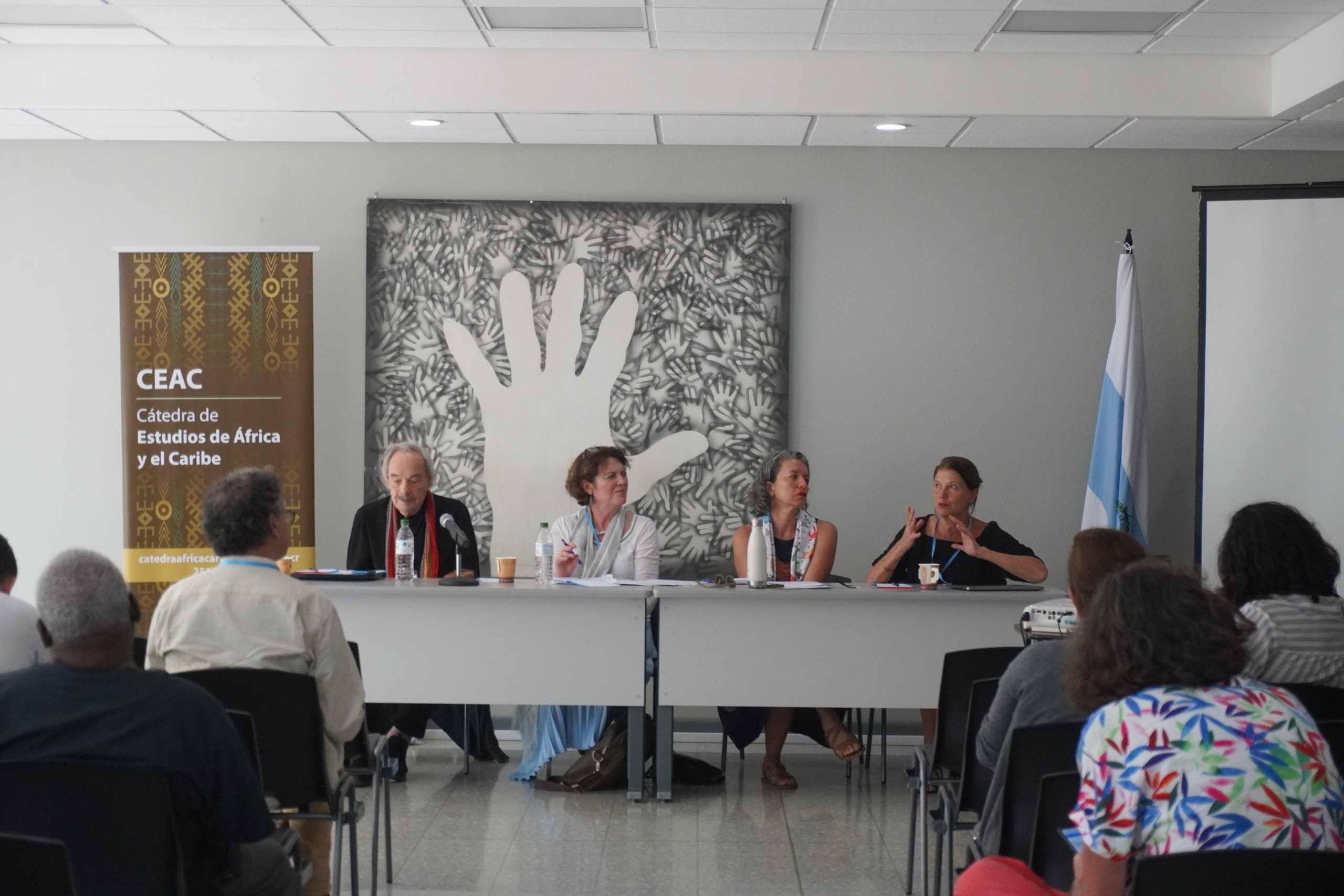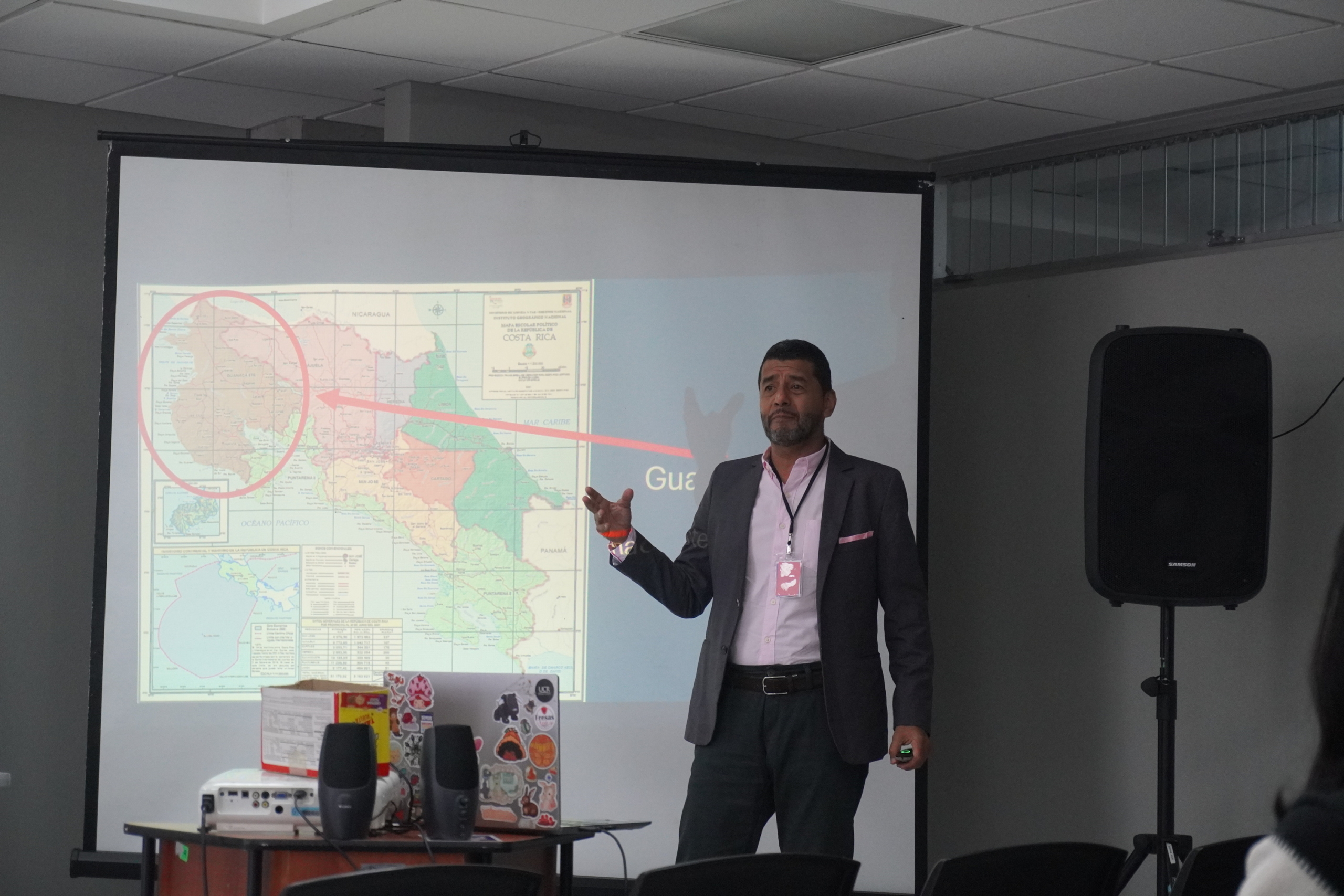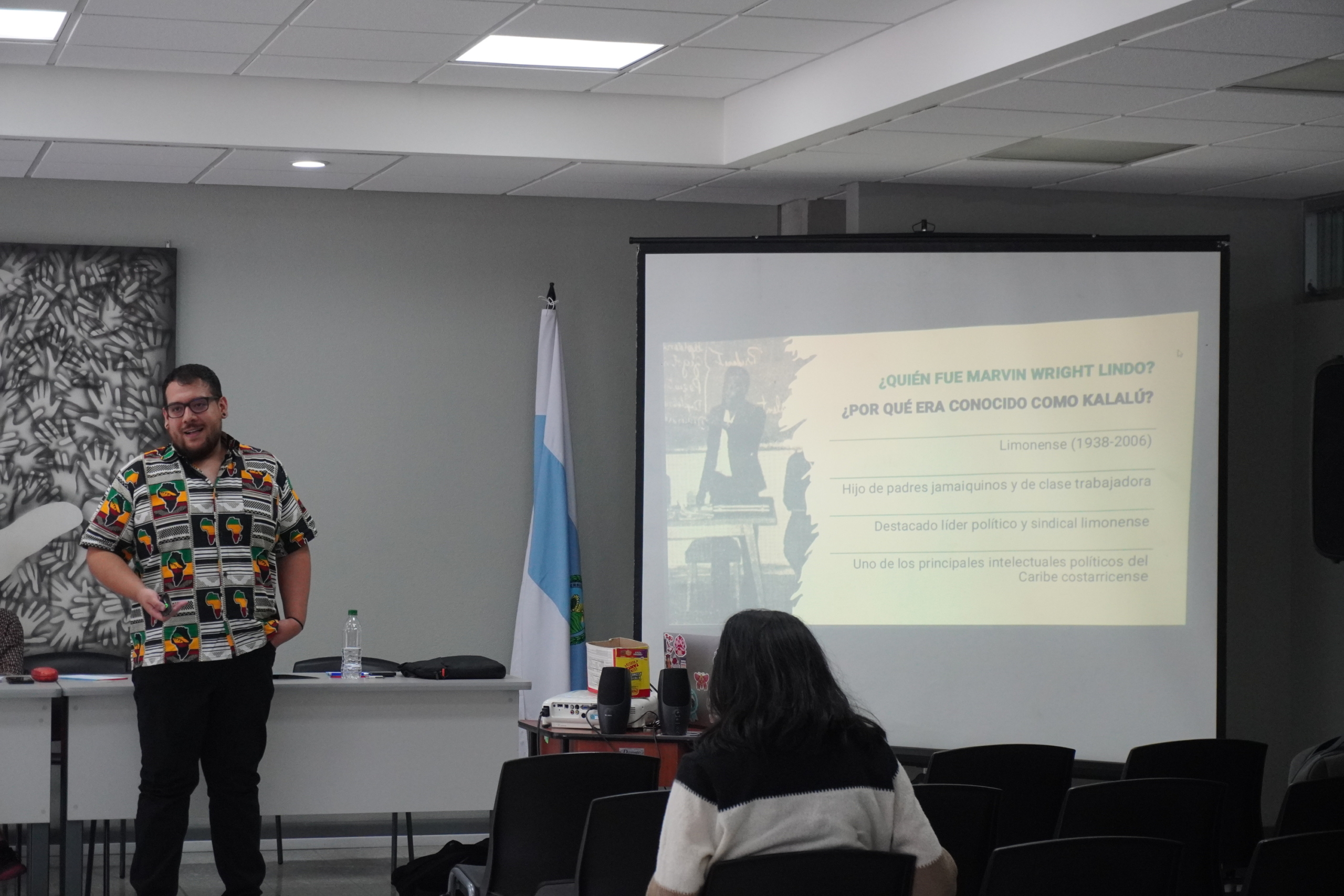III Simposio de la Cátedra de Estudios de África y el Caribe: Resistencia, desigualdades y movilidades (afro)multidimensionales.
Los días 18, 19, 20 y 21 de febrero en la Sede Rodrigo Facio y la Sede del Caribe de la Universidad de Costa Rica reunieron a 50 participantes de distintos países del Caribe, Norteamérica, América Latina, África y Europa en el debate de las formas de resistencia, desigualdades y movilidades multidimensionales que implican a las poblaciones afrodescendientes y africanas en el mundo (consulte el programa aquí).
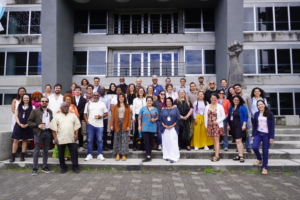
Foto grupal en la FCS – 20/02/2025
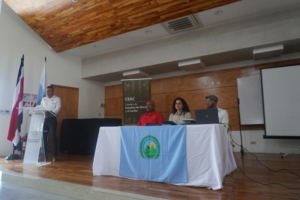
Panel 15. Belice: «Los retos de la construcción de una historia nacional en Belice: tensiones entre afrodescendencia, multiculturalismo y pensamiento decolonial».
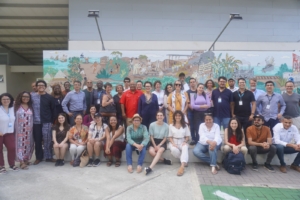
Foto grupal, Sede del Caribe, UCR. 21 de febrero, 2025.
Entablando análisis históricos que implicaron la presentación de investigaciones sobre la historia de la esclavización, el pensamiento crítico africano contemporáneo, los regímenes jurídicos contemporáneos y sus efectos en poblaciones afrodescendientes e indígenas, entre otros temas.
Organizado en 15 paneles de discusión y dos conferencias, este espacio invitó a pensar en clave mundial, generando puentes entre historias, personas, fenómenos, dinámicas e investigaciones que articulan los diferentes contextos africanos, caribeños y latinoamericanos, en línea con procesos de larga duración, los cuales permitieron identificar rupturas, continuidades y articulaciones históricas. En un momento en que se cuestionan las instituciones y normas que aseguraban la inclusión de los diversos grupos que han construido las naciones y los estados.
- Panel 1. Slave trade and resistance in the transatlantic world.
- Panel 1. Slave trade and resistance in the transatlantic world.
- Panel 1. Slave trade and resistance in the transatlantic world.
- Panel 2: Slave trade and resistance in the Transatlantic World.
- Panel 9. Afro-resistencias en Costa Rica.
- Panel 9. Afro-resistencias en Costa Rica.
La conferencia inaugural a cargo del Dr. Jean Muteba Rahier, profesor catedrático del departamento de Antropología y Estudios sobre África y la Diáspora Africana de la Florida International University se tituló: Examen multifacético de la aplicación de leyes étnico-raciales en el sistema judicial multiculturalista del Ecuador, desarrolló un examen del multiculturalismo en el Ecuador, las estructuras y ordenes jurídicos y sus alcances reales para la atención de las poblaciones afrodescendientes, permitiendo una reflexión continua durante el Simposio sobre la capacidades de los Estados para efectivizar derechos y oportunidades para poblaciones afrodescendientes en las Américas.
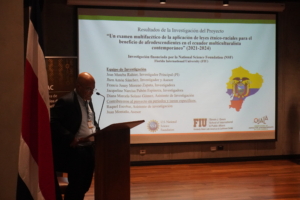
Examen multifacético de la aplicación de leyes étnico-raciales en el sistema judicial multiculturalista del Ecuador. Auditorio Plaza de la Autonomía, 18 de febrero 2025.
El cierre del Simposio, a cargo de la historiadora, la Dra. Myriam Cottias, directora del Centre Internaional de Recherces sur les esclavages y post-esclavages (CIRESC) y directora de investigación del Centre National de la Recherche Scientifique (CNRS) ambos de Francia, desarrolló la conferencia titulada: Research Challenges on Slavery and Post-Slavery. En esta la Dra. Cottias retomó los debates contemporáneos sobre esclavización y reparaciones con énfasis en el Caribe, explorando y destacando el concepto de sociedades post-esclavistas, como aquellas en las cuales la esclavitud estructura las contradicciones sociales, económicas y culturales reproduciendo formas de desigualdad a lo largo del tiempo
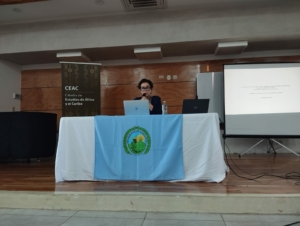
Conferencia: Research Challenges on Slavery and Post-Slavery – Sedel del Caribe, UCR. 21 de febrero, 2025.
Este evento se desarrolló en el marco y gracias a la cooperación entre el Africa Multiple Cluster of Excellence de la Universidad de Bayreuth (Alemania), la Unité de Recherche Migrations e Société (URMIS) de la Université Côte d’Azur (Francia), el Institut de Recherche pour le Développement (IRD-Francia), el Slavery in Africa: a dialogue between Europe and Africa Project (SLAFNET) y la Universidad de Costa Rica.
En la Universidad de Costa Rica, este evento fue organizado por la Cátedra de Estudios de África y el Caribe con el apoyo y soporte de: Decanato de la Facultad de Ciencias Sociales (FCS); Centro de Investigación y Estudios Políticos (CIEP); Sede del Caribe; Oficina de Asuntos Internacionales y Cooperación Externa (OAICE); Instituto de Investigaciones Psicológicas (IIP).
III Symposium of the Chair of African and Caribbean Studies: Resistance, Inequalities and (Afro)multidimensional mobilities.
On February 18th, 19th, 20th and 21st at the Rodrigo Facio and Caribbean Campus of the University of Costa Rica, 50 participants from different countries of the Caribbean, North America, Latin America, Africa and Europe met to discuss the forms of resistance, inequalities and multidimensional mobilities involving Afro-descendant and African populations in the world.
Engaging in historical analyses that involved the presentation of research on the history of enslavement, contemporary African critical thought, contemporary legal regimes and their effects on Afro-descendant and indigenous populations, among other topics.
Organized in 15 discussion panels and two conferences, this space invited to think globally, generating bridges between histories, people, phenomena, dynamics and research that articulate the different African, Caribbean and Latin American contexts, in line with long-term processes, which allowed to identify ruptures, continuities and historical articulations. At a time when the institutions and norms that ensured the inclusion of the various groups that have built nations and states are being questioned.
The keynote was given by Dr. Jean Muteba Rahier, Professor of the Department of Anthropology and African and African Diaspora Studies at Florida International University. Entitled: Multifaceted examination of the application of ethno-racial laws in Ecuador’s multiculturalist judicial system, developed an examination of multiculturalism in Ecuador, the structures and legal orders and their real scope for the attention of Afro-descendant populations, allowing for a continuous reflection during the Symposium on the capacities of the States to make effective rights and opportunities for Afro-descendant populations in the Americas.
The Symposium was closed by historian Dr. Myriam Cottias, director of the Centre Internaional de Recherces sur les esclavages et post-esclavages (CIRESC) and research director of the Centre National de la Recherche Scientifique (CNRS), both from France, with a conference entitled: Research Challenges on Slavery and Post-Slavery. Dr. Cottias took up the contemporary debates on slavery and reparations with emphasis on the Caribbean, exploring and highlighting the concept of post-slavery societies, as those in which slavery structures social, economic and cultural contradictions, reproducing forms of inequality over time.
This event was developed within the framework and thanks to the cooperation between the Africa Multiple Cluster of Excellence of the University of Bayreuth (Germany), the Unité de Recherche Migrations e Société (URMIS) of the Université Côte d’Azur (France), the Institut de Recherche pour le Développement (IRD-France), the Slavery in Africa: a dialogue between Europe and Africa Project (SLAFNET) and the University of Costa Rica.
At the University of Costa Rica, this event was organized by the Chair of African and Caribbean Studies with the support of: Dean’s Office of the Faculty of Social Sciences (FCS); Center for Research and Political Studies (CIEP); Caribbean Headquarters; Office of International Affairs and External Cooperation (OAICE); Institute of Psychological Research (IIP).
